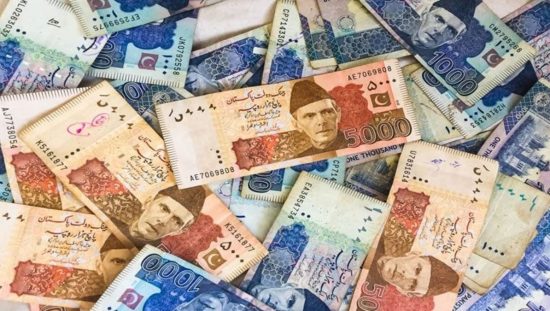The 10th July, 1976
No. FD/Accounts/OSD/498 — In exercise of the powers conferred by Section 23 of the Punjab Civil Servants Act, 1974, the Governor of the Punjab is pleased to make the following Rules, namely:-
Section I – Travelling Allowance
1.1 Short title
These rules may be called the Punjab Travelling Allowance Rules.
1.2 Commencement
They shall come into force at once.
1.3 Earlier rules rescinded
The Travelling Allowance Rules in force in the Punjab immediately before the coming into force of these rules shall stand rescinded.
1.4 Extent of application
These rules shall apply to —
i) All civil servants serving in connection with the affairs of the Punjab Government whose conditions of service the Governor of the Punjab is competent to determine;
ii) All officers belonging to the All Pakistan Unified Grades in respect of whom the Governor of Punjab has been delegated the powers to frame the rules regulating their travelling allowance; and
iii) Civil servants on deputation with the Government of Punjab from the Federal Government or other Provinces of Pakistan, unless otherwise determined in any particular case.
1.5 Definitions
In these rules, unless the context otherwise requires, the following expressions shall have the meanings hereby respectively assigned to them, that is to say —
a) “Audit Officer” means the Head of Office of Audit and Accounts subordinate to the Auditor-General of Pakistan who keeps the accounts of the Province of the Punjab or a part thereof and exercises audit functions in relation to those accounts on behalf of the Auditor-General of Pakistan;
b) “Authorized Medical Attendant” means a Medical Officer of government required to attend on a civil servant or his family under the rules relating to medical attendance on civil servants;
c) “Competent Authority” in relation to the exercise of any powers means the Administrative Department concerned, acting in consultation with the Finance Department, or any other authority to which such powers may have been delegated;
d) “Controlling Officer” means an officer declared as such for exercising supervision over the travelling allowance claims of a civil servant;
e) “Day” means a calendar day beginning and ending at midnight;
f) “Family” means a civil servant’s:-
i) Wife or wives, or husband as the case may be;
ii) Legitimate children and stepchildren less than 12 years of age;
iii) Legitimate children and step-children *(more than 12 years old but) not more than 24 years old, if residing with and wholly dependent upon him;
iv) Adopted child not more than 24 years old subject to the following conditions:-
a) The civil servant has no legitimate or step-child of his own;
b) Prior approval of the government is obtained for having adopted the child;
c) Government’s liability will be restricted to one adopted child only;
d) Adopted child will cease to be a member of the family if after his adoption, the civil servant has a legitimate or step-child of his own; and
e) Adopted child is residing with and is wholly dependent upon him.
Explanation — A child not actually residing with a civil servant but residing in the same station where the headquarters of the civil servant is situated shall be deemed to be residing with the civil servant.
g) “Finance Department” means the Finance Department of the Government of Punjab;
h) “Government” means the Government of Punjab;
i) “Head of Department” means any authority whom government may declare to be Head of Department for the purposes of these rules and includes all secretaries to government and heads of attached departments;
j) “Head of Office” means any officer designated as disbursing officer or any other civil servant declared to be the head of office by the competent authority;
k) “Headquarters” of a civil servant is the station which has been declared as such by a competent authority or in the absence of such a declaration, the station where the records of his office are kept;
l) “Local Authority” means a local council, municipal corporation, municipal committee, municipality, zila council, tehsil council, union council, union committee, town committee, body of port trustees or commissioners, or other authority legally entitled to, or entrusted by the government with the control of management of a municipal or local fund;
m) “Month” means a month reckoned according to the British Calendar;
n) “Pay” includes special pay, qualifications pay, personal pay, and any other emoluments which may be specially classed as pay by a competent authority, and in case a re-employed civil servant whose pension is not wholly held in abeyance, pay includes the pension drawn by him provided that if the total of pay and pension exceeds the maximum of the pay scale of the post held during re-employment, the maximum pay of such scale shall be deemed to be the pay;
o) “Public Conveyance” means a railway train, steamer, bus or other conveyance which plies regularly on a given course for the conveyance of passengers;
p) “Personal car” is a car registered in the name of the civil servant or in the name of any member of his family;
q) “Prescribed” means prescribed under these rules; and
r) “Transfer” means the movement of a civil servant from one headquarters station to another such station either to take duties of a new post or in consequence of a change in his headquarters.
1.6 Nature of travelling allowance
(1) Travelling allowance is granted to a civil servant to cover the expenses which he incurs in travelling in the interest of public service.
(2) A civil servant’s claim to travelling allowance shall be regulated by the rules in force at the time the journey in respect of which the claim is made, is undertaken.
1.7 Functions of controlling officers
A controlling officer in order to ensure that travelling allowance is not turned into a source of profit and that travelling is resorted to only when it is necessary in the interest of public service may–
a) Issue instructions limiting the extent of touring to be done by a subordinate officer;
b) If the subordinate officer is in receipt of a conveyance allowance or a permanent travelling allowance and has done inadequate touring may reduce the amount of such permanent travelling allowance or conveyance allowance; and
c) Issue instructions to a subordinate civil servant to regulate his touring in such a way as to minimize unnecessarily large claims for travelling allowance.
1.8 Signature of controlling officer on travelling allowance bill
No bill for travelling allowance other than permanent travelling allowance or conveyance allowance shall be paid, unless it is signed or countersigned by the controlling officer.
1.9 Journey on duty connected with a local authority
When a civil servant paid from the Provincial Consolidated Fund travels on duty connected with the affairs of a Local Authority (for which the travelling allowance is payable from the Local Fund), he should prepare a separate bill for such journeys but should forward such bill with the bill for the same month, if any, payable from Provincial Consolidated Fund, to the controlling officer for the latter bill, who will scrutinize the bills, and forward the bill payable by a local body to the local body concerned for necessary action under the rules of the Local Fund.
1.10 Journeys for which travelling allowance may be drawn
Travelling allowance may be drawn in respect of a journey performed:-
a) For the purpose of tour;
b) On transfer;
c) On joining a first appointment;
d) On retirement, suspension, dismissal or termination of employment;
e) To attend a course of training or to appear at an examination;
f) To give evidence in a court or to attend an inquiry or conference;
g) To obtain or furnish medical advice or treatment;
h) To attend a darbar or an official function;
i) In attendance on an incapacitated civil servant or member of his family; and
j) For any other purpose authorized by a competent authority.
1.11 Journey within (ten miles) 16 – kilometers
The pay of a civil servant is supposed to include the cost of maintaining a conveyance proper to his status, and, therefore, ordinarily he is not to be paid any travelling allowance for journeys within (ten miles) 16-kilometers of his headquarters, nor is he to be paid for journeys from his residence to his office. A competent authority may, however, sanction a monthly conveyance allowance to a civil servant under the following circumstances:-
i) When he does intensive touring within (ten miles) 16-kilometers of his headquarters; or
ii) When on account of shortage of residential accommodation in a particular locality, he has to reside at a considerable distance from his office.
Section II – Daily Allowance
2.1 Daily allowance
(1) A per diem (daily) allowance is uniform allowance for each day of absence from headquarters which is intended to cover the extra daily expenditure incurred by a civil servant in consequence of such absence.
(2) A day is to be reckoned from midnight.
(3) Daily allowance will be admissible at full rate when during the absence from headquarters a night is spent while being on tour.
(4) Daily allowance will be admissible at half rate when the absence from headquarters is for more than 4 hours but no night intervenes the said absence.
(5) A part of day less than 4 hours is to be ignored for the purposes of daily allowance.
(6) Notwithstanding anything to the contrary contained in sub-rules (3), (4) and (5), an officer availing H.O.R. facilities will be entitled to draw for journey days daily allowance at full rate for a complete day and at half the rate for a half day or less.
2.2 Rates of daily allowance
(i)The rates of daily allowance shall be as follows:-
| Pay Limit (in PKR) | Special (in PKR) | Ordinary (in PKR) | |
| i. | 1245 to 2000 | 80 | 65 |
| ii. | 2001 to 3000 | 100 | 85 |
| iii. | 3001 to 4000 | 120 | 100 |
| iv. | 4001 to 5000 | 145 | 120 |
| v. | 5001 to 6000 | 175 | 150 |
| vi. | 6001 to 7000 | 215 | 180 |
| vii. | 7001 to 8000 | 260 | 225 |
| viii. | 8001 to 9000 | 300 | 280 |
| ix. | 9001 to 10000 | 350 | 300 |
| x. | 10001 and above | 400 | 350 |
(ii) A civil servant in BS-20 and above and Secretary to Government who stays in a hotel, guest house, inspection bungalow or a residential club, shall in addition to the above daily allowance, be allowed reimbursement of actual single room rent including taxes/duties and service charges relating to room rent subject to production of receipts/vouchers up to the following maximum per day:
a) Localities where special 3 times the amount of daily allowance special daily is admissible allowance
b) Localities where ordinary One and a half times daily allowance the amount of daily is admissible allowance.
(iii) A civil servant (other than in BS-20 and above and secretary to government) who stays in a government rest house, guest house, lodge or a residential club shall be allowed the actual room rent up to the maximum per day as given in sub-rule(ii) above. Such a civil servant shall also be allowed reimbursement of actual single room rent, including taxes, duties and service charges relating to room rent, subject to same maximum per day, on stay in a hotel at Divisional Headquarters only.
(iv) The provincial civil servants while travelling outside the Province be allowed reimbursement of room rent charges subject to the same maximum as given in sub-rule (ii) above in respect of stay in a hotel besides guest/rest houses, lodges, inspection bungalows and residential clubs.
Note — Special rate of daily allowance shall be admissible at Hyderabad, Islamabad, Karachi, Lahore, Faisalabad, Multan, Peshawar, Quetta and Rawalpindi.
2.3 Period for which daily allowance may be drawn
Daily allowance may be drawn for the entire period of absence from headquarters, i.e., for the time spent on a journey, a halt, on tour or on a holiday occurring during a tour.
2.4 Maximum period for which daily allowance is admissible
(1) Daily allowance may not be drawn for a continuous halt of more than ten days at any one place:
Provided that a competent authority may, if it is satisfied that prolonged halts are necessary in the interest of the public service, grant general or individual exemptions from the operation of this rule, on such conditions including reduction in the amount or rate of daily allowance, as it thinks fit.
2.5 For the purposes of these rules
(a) After a continuous halt of ten days’ duration, the halting place shall be regarded as the Government servant’s temporary headquarters.
(b) A halt is continuous unless terminated by an absence on duty at a distance from the halting place exceeding (ten miles) 16 Kilometers for a period of not less than three nights:
Provided that when a civil servant returns to his headquarters, the halt is terminated, even though the return is for less than three nights.
OTHER RELATED POSTS
Leaves Rules 1981 for Govt. Employees
The Punjab Government Servants Benevolent Fund Ordinance, 1960



